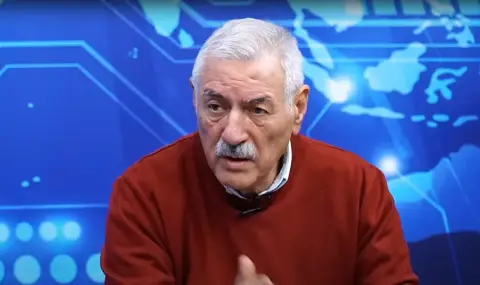If 20-30% is not stolen, and I hear about more, there will be money for safe roads. The death of Siyana and all those who died on the road weigh on the conscience of politicians who do not accept good rules and do not create conditions for control. This was commented on the program "(O)posizion" by the road construction specialist and chairman of the Scientific and Technical Union for Transport Eng. Yasen Ishev.
Ishev has carried out a personal inspection of the section of main road 3 between Rudartsi and Telish, where 12-year-old Siyana died in a serious accident, and believes that there is a problem with its condition. At normal speed, however, there should not have been any serious difficulties and the tractor driver probably applied the brakes at the wrong time.
"We visited the place on Thursday, when a speed limit of 60 km/h was first introduced, and then - up to 70 km/h. No one was following this sign. Trucks and cars were whizzing by at speeds of around 100 km/h. The terrain conditions themselves allow for these higher speeds. The radius of the curve on this bend is very large, the slope is steep, the cars are increasing their speed. Perhaps the driver applied the brakes at the wrong time and the trailer spun. Currently, the main thing being discussed is the condition of the road, but the main fault for most accidents lies with the drivers," he said.
"API cannot be held responsible for things for which it is not responsible. The agency is constantly in deficit and cannot work. There is no clear program at all to eliminate areas with a concentration of traffic accidents. "The people in the National Assembly and the Council of Ministers are to blame for this," Ishev was categorical.
According to him, road safety should be the number one priority, because people die on the road and there is a constant war, but this is not happening.
"The death of Siyana should lie on the conscience of all those who give and take bribes and those who do not accept working rules," Ishev pointed out.
He gave an example of the lack of average speed limits in our country, the lack of good training in the field of traffic safety education, the lack of real control over the condition of the roads.
According to Ishev, public pressure should continue until there is change, but it will be difficult to happen without a working judicial system and penalties for abuses and violations.
